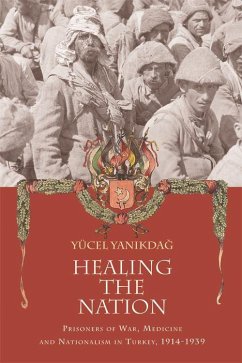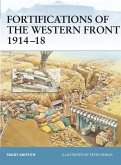'This highly original and impeccably researched study helps us understand not only the workings of the Ottoman military establishment but also the state formation in the late Ottoman Empire and the influence of German theories of medicine, psychiatry and eugenics in this complex process.' M. Şükrü Hanioğlu, Garrett Professor in Foreign Affairs, Near Eastern Studies Department, Princeton University Unique sources reveal how the Great War and its psychological fallout influenced the construction of Turkish identity and nationalism What did Ottoman prisoners of war imprisoned in Russia and Egypt during the Great War understand of nation, culture and Islam? And what role did science play in the imagined future of the nation for the Ottoman-Turkish psychiatrists who diagnosed prisoners following post-war repatriation? Doctors' interpretation of prisoners' health issues led to far-reaching questions about the relationship between the prisoners' physical bodies and mental states on the one hand, and the body politic and collective mentality of the Turkish Republic during the interwar period, on the other. During the interwar years, when the military's vigour was still taken to be a reflection of the nation's health, doctors projected the worrisome picture of the shattered nerves of both prisoner and non-prisoner alike onto the nation at large. The Great War revealed the poor health of the nation and gave medical men the chance to regenerate it through eugenics. Just as officer prisoners in the camps excluded ignorant peasants from their discursive construction of the nation, the psychiatrists disqualified those seen to threaten the nation's body. Key Features - Uses previously untapped sources to reveal a new story of prisoners, medicine and nationalism - Broadens the discussion of nationalism to include both ideological and biological factors - Explores the social, demographic, psychological and medical impact of the Great War on the Ottoman Empire and Modern Turkey Yücel Yanıkdağ is Associate Professor of History at the University of Richmond. Cover image: Vaveyla, Prisoner of War newspaper masthead, hand-drawn image, Krasnoyarsk, Siberia, image courtesy of Library of the Turkish Parliament (TBMM), Ankara. The Campaign in Mesopotamia during the First World War: a group of Turkish prisoners captured during the action of Tuz Khurmatli, Varges Ariel, catalogue number: Q 24659 (c) Imperial War Museum. Cover design: [EUP logo] www.euppublishing.com
Bitte wählen Sie Ihr Anliegen aus.
Rechnungen
Retourenschein anfordern
Bestellstatus
Storno







